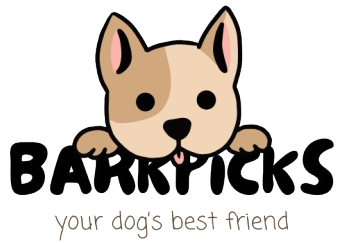The Shiba Inu is Japan’s most popular companion dog, beloved for its fox-like appearance, bold personality, and enduring spirit. As one of the oldest and smallest of Japan’s native breeds, the Shiba Inu has made a lasting impression both in its homeland and internationally. Known for its cat-like agility and independent nature, this breed is a unique blend of charm, strength, and stubbornness.
Origins and History
The Shiba Inu is an ancient breed, with roots tracing back over 2,000 years to Japan’s mountainous regions. Originally bred for hunting small game such as birds and rabbits, the Shiba Inu was prized for its agility, keen senses, and ability to navigate rugged terrain.
The name “Shiba” means “brushwood” in Japanese, which may refer to the dog’s hunting grounds or its reddish coat, while “Inu” simply means dog. Despite surviving through centuries of Japanese history, the breed nearly faced extinction after World War II due to food shortages and disease. Thanks to dedicated preservation efforts, the Shiba Inu was revived and is now a national treasure in Japan, designated as a “Natural Monument” in 1936.
Appearance and Physical Traits
The Shiba Inu is a compact, well-muscled dog with a bold expression and a tail that curls tightly over its back. Its appearance is often likened to a small fox due to its upright ears, almond-shaped eyes, and bushy tail.
Key physical features:
- Height: 13.5 to 16.5 inches
- Weight: 17 to 23 pounds
- Coat: Double coat with a soft undercoat and stiff, straight outer coat
- Colors: Red, sesame (red with black-tipped hairs), black and tan, or cream
- Eyes: Dark brown, slightly slanted
- Tail: Curled or sickle-shaped, carried over the back
Despite its small size, the Shiba Inu is sturdy and athletic, capable of running fast and jumping with impressive ease.
Temperament and Personality
The Shiba Inu’s personality is as striking as its appearance. Independent, confident, and sometimes aloof, this breed is not your typical eager-to-please dog. Instead, the Shiba Inu prefers to make its own decisions, often displaying a cat-like demeanor.
Notable traits include:
- Independent thinker: Strong-willed and self-assured
- Alert and watchful: An excellent watchdog
- Loyal but reserved: Forms strong bonds but may be aloof with strangers
- Clean and fastidious: Often grooms itself like a cat
- Playful and bold: Loves to explore and engage with its environment
Despite its independence, the Shiba Inu is incredibly loyal to its family. It tends to be affectionate on its own terms and thrives best in homes that understand and respect its need for space and autonomy.
Training and Socialization
Training a Shiba Inu can be both a rewarding and challenging experience. Highly intelligent, this breed learns quickly but also tends to test boundaries.
Training tips:
- Begin socialization early with people, pets, and environments
- Use positive reinforcement and rewards
- Be consistent, patient, and firm without being harsh
- Avoid repetitive tasks; Shibas can become bored easily
Due to its strong prey drive, recall training is especially important. Many Shibas should not be trusted off-leash in unsecured areas, as they may chase squirrels or birds without hesitation.
Exercise and Activity Needs
While the Shiba Inu is adaptable to various living environments, it needs regular exercise to stay happy and healthy.
Daily needs include:
- At least one brisk walk or jog
- Playtime in a secure, fenced yard or indoor games
- Mental stimulation through puzzle toys or training sessions
Though not overly hyperactive, Shibas can become destructive or vocal if left under-stimulated.
Grooming and Care
The Shiba Inu’s thick double coat requires regular grooming to manage shedding and maintain its natural beauty.
Grooming tips:
- Brush at least twice a week; daily during heavy shedding seasons (spring and fall)
- Bathe only when necessary—Shibas tend to stay clean
- Trim nails regularly and maintain dental hygiene
Shibas are generally clean dogs with little odor, making them relatively easy to manage in terms of grooming.
Health and Lifespan
The Shiba Inu is a robust and healthy breed with a lifespan of 12 to 16 years. However, like all breeds, they are prone to certain health conditions.
Common issues include:
- Allergies (food or environmental)
- Hip dysplasia
- Patellar luxation
- Glaucoma or other eye disorders
Regular vet checkups, a balanced diet, and responsible breeding practices can greatly reduce health risks.
Ideal Home and Lifestyle
The Shiba Inu is best suited for experienced dog owners who appreciate its independence and are willing to invest time in training and socialization. They do well in apartments or houses with yards, provided they get daily exercise and mental engagement.
This breed is ideal for:
- Singles or couples with an active lifestyle
- Families with older children who understand dog behavior
- Owners looking for a clean, quiet companion
First-time dog owners may find the Shiba Inu’s aloofness and willful nature a bit overwhelming, but those who value a spirited and dignified companion will find the Shiba to be a loyal and rewarding pet.
Conclusion
The Japanese Shiba Inu is a remarkable blend of beauty, intelligence, and independence. With its fox-like appearance and spirited personality, this breed stands out in both looks and character. While not the easiest dog to train, the Shiba Inu’s loyalty and charm make it a deeply rewarding companion for those who understand and respect its unique nature.







